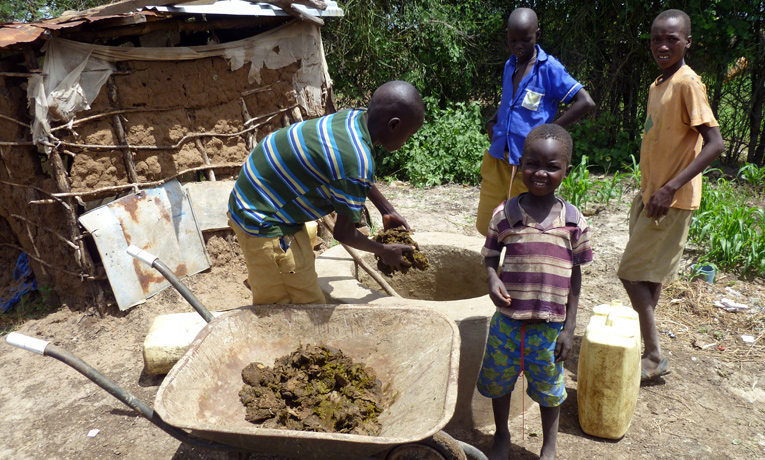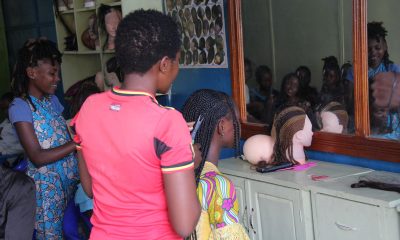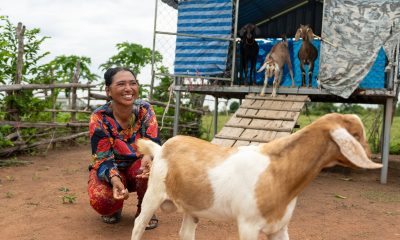A Samaritan's Purse pilot project is increasing the quality of life by providing fuel that is cheaper and easier to use than firewood
In northeastern Uganda, where the average person makes $1.50 per day, spending $8 on firewood is unimaginable. However, it’s still needed for cooking. In the Karamoja region, women must walk eight miles every three to four days to collect enough wood to cook for their families.
Karamoja is a land of extremes—a place of profound beauty, breathtaking vistas, and seemingly endless savannahs. It is also a place of chronic poverty, hunger, and insecurity. People are exposed to a great deal of risk even in the simple task of venturing to collect firewood.
DonarForty-year-old Peter Lokut lives in Lotome, a small town in Karamoja. His wife and eight children were entirely dependent upon firewood for fuel. He has experienced the insecurities of living in a region where gender-based violence is an ever-present threat.“Armed thugs have been known to strip clothing and to even kill people,” he said. “When my wife went to fetch firewood last year, they took her shoes and clothing.”
Peter also shared that one of his huts burned to the ground while his family was cooking food on an open fire. Another time, his daughter was burned by the flame and still has a scar across her stomach. Peter is also aware that smoke from burning firewood in an enclosed space poses a respiratory health risk to his family.
But until recently, they had no viable alternative way to cook their food.
Samaritan’s Purse introduced biogas technology to nine households as a pilot project to help solve this problem.
Biogas is generated through a combination of cow or pig dung and water. The mixture is then poured into a specially designed underground tank called a digester. As the concoction ferments, gas is produced. The gas then travels through pipes from the underground system into the home, where it powers a special stove and lamp for cooking and lighting. The residue that flows out of the digester, called bio-slurry, can also be used as a fertilizer, boosting crop production in gardens.
Biogas is a low-cost fuel alternative that can help in the areas of income and security while reducing the long-term effects of deforestation. It also isn’t dependent on unreliable rainfall patterns, prolonged droughts, or flash floods, and low crop yields.
Peter’s family was one of the nine chosen to test the impact of the technology in a region where deforestation for firewood is rampant.
When Peter was approached by Samaritan’s Purse about installing the technology in his home, he was eager to learn what it could do. He and his family helped install the system by digging the pit for the tank and off-loading construction materials from the truck.
“I was excited to get a source of energy and even to use the waste as fertilizer for my field,” he said.
The technology has also affected his children. They’re able to stay awake after dark without needing to rely on kerosene. Before the biogas technology was installed, the family had to use kerosene for light at night. A week’s worth of kerosene costs $2. Now a biogas-burning lamp provides light that his children use to read and do their schoolwork.
Cooking is also quicker and more efficient with biogas. Before, it took an hour to make porridge. Now it takes six minutes. With the time saved from cooking and traveling for wood, Peter and his wife can spend more of the day tending to their garden and increasing household food production.
They are also taking advantage of the surplus bio-slurry by using it as fertilizer to plant crops in new places. The difference between the previous crops and those with bio-slurry fertilizer is stark. His fertilized crops are growing twice as tall and are flourishing with brilliant, nutritious green leaves.
“It has greatly improved my family,” he said.
Peter hopes the technology will spread throughout the community and benefit his neighbors. They have seen its incredible impact and want others to share in their new-found joy.






